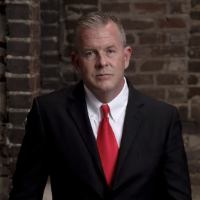Pinola Misdemeanor Lawyer, Mississippi
Not enough matches for Pinola Misdemeanor lawyer.
Below are all Pinola Criminal lawyers.
Heather White Martin
✓ VERIFIEDCriminal, Family Law, Estate
Heather White Martin is a practicing lawyer in the state of Mississippi handling family law cases.
Robert Bryan Ogletree
✓ VERIFIEDFamily Law, Divorce, Criminal, Personal Injury, Car Accident
Robert Ogletree has built a diverse practice representing both corporations and individuals. Mr. Ogletree's jury trials include cases involving medic... (more)
Mark Hutchison
✓ VERIFIEDCriminal, Felony, Misdemeanor, Divorce & Family Law, Divorce
I am a former assistant city prosecutor who has been practicing for over 20 years and have represented hundreds of clients. We are primarily a crimina... (more)
Lindsey Ann Hill
Adoption, Alimony & Spousal Support, Criminal, Child Support
Status: In Good Standing
FREE CONSULTATION
CONTACTDavid B Clark
Criminal, Domestic Violence & Neglect, Property Damage, Prosecution
Status: Inactive Licensed: 56 Years
Anders Ferrington
Intellectual Property, Divorce & Family Law, Criminal, Accident & Injury
Status: In Good Standing Licensed: 17 Years
FREE CONSULTATION
CONTACT



